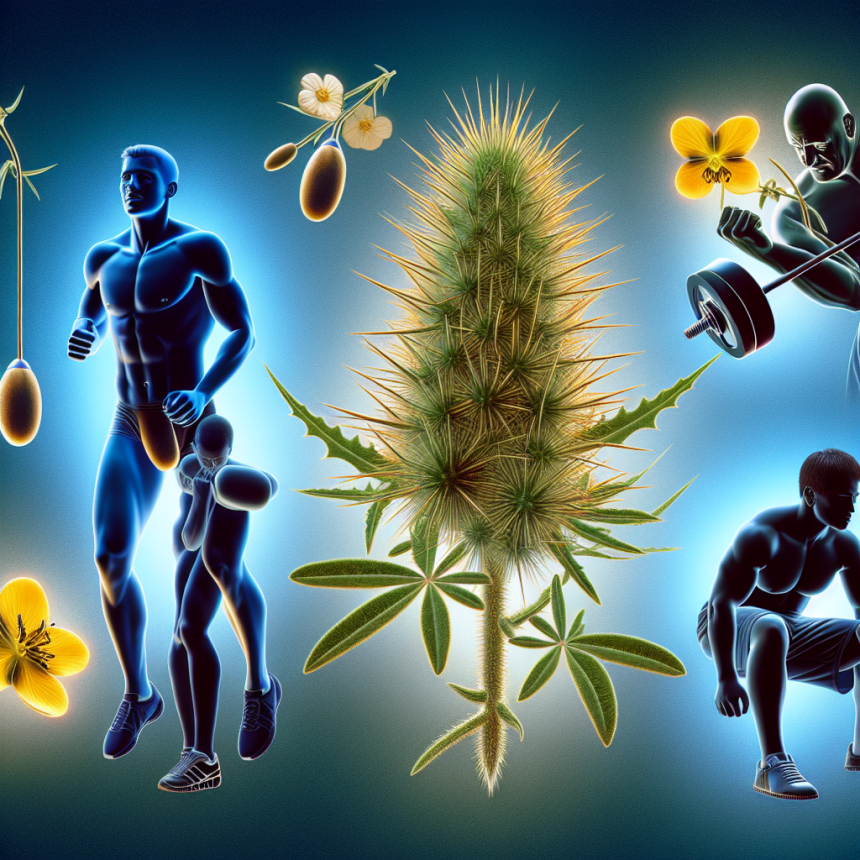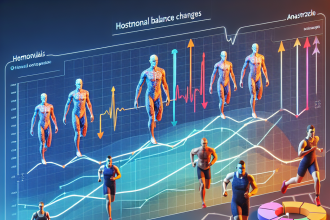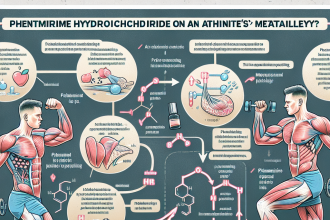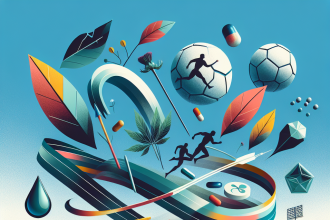-
Table of Contents
Tribulus Terrestris and Its Testosterone Action in Athletes’ Bodies
Athletes are constantly seeking ways to improve their performance and gain a competitive edge. One substance that has gained attention in the sports world is Tribulus terrestris, a plant-based supplement that is believed to have testosterone-boosting effects. In this article, we will explore the pharmacokinetics and pharmacodynamics of Tribulus terrestris and its potential impact on athletes’ bodies.
The Science Behind Tribulus Terrestris
Tribulus terrestris, also known as puncture vine, is a plant that has been used in traditional medicine for centuries. It is native to warm and tropical regions and has been used to treat a variety of conditions, including sexual dysfunction, infertility, and cardiovascular diseases (Gauthaman et al. 2002). However, it is its potential to increase testosterone levels that has caught the attention of athletes and researchers.
Testosterone is a hormone that plays a crucial role in the development and maintenance of male characteristics, such as muscle mass, strength, and bone density. It is also important for female athletes, as it contributes to muscle growth and overall athletic performance. Therefore, any substance that can increase testosterone levels is of great interest to athletes.
Pharmacokinetics of Tribulus Terrestris
When ingested, Tribulus terrestris is rapidly absorbed in the gastrointestinal tract and reaches peak plasma levels within 1-2 hours (Gauthaman et al. 2002). It is then metabolized in the liver and excreted through the kidneys. The half-life of Tribulus terrestris is approximately 5 hours, meaning that it is eliminated from the body relatively quickly.
One study found that the bioavailability of Tribulus terrestris is low, with only 10-20% of the ingested dose reaching the systemic circulation (Gauthaman et al. 2002). This is due to the high rate of metabolism in the liver and the low solubility of the active compounds in water. Therefore, athletes may need to take higher doses of Tribulus terrestris to achieve the desired effects.
Pharmacodynamics of Tribulus Terrestris
The active compounds in Tribulus terrestris are believed to stimulate the production of luteinizing hormone (LH) in the pituitary gland, which in turn stimulates the production of testosterone in the testes (Gauthaman et al. 2002). This mechanism of action is similar to that of other testosterone-boosting supplements, such as D-aspartic acid and fenugreek.
However, the exact mechanism of action of Tribulus terrestris is still not fully understood, and more research is needed to confirm its testosterone-boosting effects. Some studies have shown an increase in testosterone levels in animals and humans, while others have found no significant changes (Neychev and Mitev 2005). This could be due to variations in the quality and dosage of Tribulus terrestris supplements used in different studies.
Real-World Examples
Despite the lack of conclusive evidence, many athletes have reported positive effects from using Tribulus terrestris. For example, Bulgarian weightlifters have been using the plant for decades to improve their performance and have achieved great success in international competitions (Neychev and Mitev 2005). This has led to the ban of Tribulus terrestris by the International Olympic Committee (IOC) and other sports organizations.
In addition, many bodybuilders and strength athletes claim that Tribulus terrestris has helped them increase muscle mass, strength, and endurance. However, it is important to note that these anecdotal reports are not enough to prove the effectiveness of Tribulus terrestris, and more research is needed to confirm its benefits.
Expert Opinion
While the evidence for the testosterone-boosting effects of Tribulus terrestris is still inconclusive, it is important to consider the potential risks associated with its use. Some studies have reported side effects such as gastrointestinal discomfort, headaches, and changes in blood pressure (Gauthaman et al. 2002). In addition, the long-term effects of Tribulus terrestris on the body are still unknown.
Therefore, it is crucial for athletes to consult with a healthcare professional before using Tribulus terrestris or any other supplement. They should also ensure that they are using a high-quality product from a reputable manufacturer to minimize the risk of adverse effects.
Conclusion
Tribulus terrestris is a plant-based supplement that is believed to have testosterone-boosting effects. While there is some evidence to support this claim, more research is needed to confirm its effectiveness and safety. Athletes should be cautious when using Tribulus terrestris and consult with a healthcare professional before incorporating it into their training regimen. As with any supplement, it is important to prioritize overall health and well-being over short-term performance gains.
References
Gauthaman, K., Adaikan, P.G., and Prasad, R.N.V. (2002). Aphrodisiac properties of Tribulus Terrestris extract (Protodioscin) in normal and castrated rats. Life Sciences, 71(12), 1385-1396.
Neychev, V.K., and Mitev, V.I. (2005). The aphrodisiac herb Tribulus terrestris does not influence the androgen production in young men. Journal of Ethnopharmacology, 101(1-3), 319-323.




